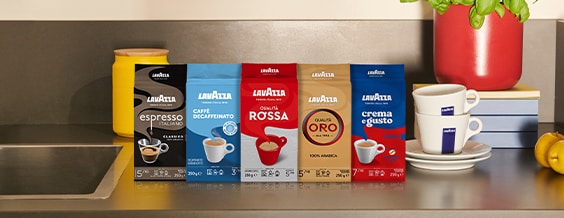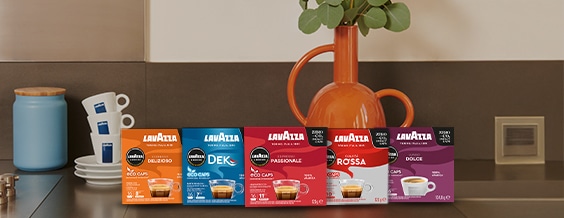*Lavazza is not affiliated with, endorsed or sponsored by Nespresso


UK TAX STRATEGY OF LAVAZZA UK SUBSIDIARIES
1. INTRODUCTION
According to paragraph 19 (2) of Finance Act 2016, this document sets out the tax strategy (“UK Tax Strategy”) of the relevant UK subsidiaries of Lavazza Group. The document is effective for the year ending 31 December 2024 and will be periodically reviewed and updated.
The UK Tax Strategy covers the following subsidiaries (collectively “Lavazza UK subsidiaries”):
- Lavazza Professional UK Ltd;
- Lavazza Professional UK Operating Services Ltd;
- Lavazza Coffee (UK) Ltd.
The current tax strategy is published and accessible to the public free of charge on the official site of the Lavazza UK subsidiaries.
The UK Tax Strategy is in line with the Group Tax Strategy of Lavazza Group which has been approved by the Board of Directors of Luigi Lavazza S.p.A. on March 24th, 2021.
The Group Tax Strategy has the following objectives:
- To define the tax risk appetite, intended as the risk of infringing tax and customs regulations, which the Group should assume to pursue its strategic targets in compliance with the principle of legality.
- To spread the general principles of conduct in tax matters to the employees, keeping in mind - first of all - the value of responsibility, encouraging and adequately recognizing virtuous behaviour.
- To stimulate the adaptation of the organisation and related processes (fiscal governance) in compliance with the defined objectives.
- To promote constant relationships with the Tax Authorities in a professional, transparent and timely manner.
2. TAX RISK MANAGEMENT AND TAX PLANNING
Lavazza UK subsidiaries promote the spread of the tax culture and consider of primary importance to be compliant with all the laws and regulations of a tax nature applicable in UK. The prevention of risky situations is, in fact, preferable and always encouraged over the management of the related negative effects.
The implementation of the UK Tax Strategy is based on the assumption that the tax risks pertain to the ordinary and extraordinary course of business and to the related internal processes.
It follows that all strategic or management decisions, ordinary or extraordinary, require a prior assessment of the tax implications. To this end, all the corporate stakeholders involved - starting from the Top management and going down into the organization - have the responsibility of involving in advance the HQ Tax Department, competent in tax matters, for the assessment of the tax impact of the transactions and the combined awareness regarding the methods of managing the potential tax risks.
Day-to-day management of the Lavazza UK subsidiaries tax affairs is primarily carried out in-house by the finance department.
The HQ Tax Department is involved whenever a complex or extraordinary operation is carried out by Lavazza UK subsidiaries and external tax advisors are engaged for tax compliance matters.
The UK Tax Strategy, by defining the methods of sound and prudent management of taxation, is inspired by the principles set out in the Code of Ethics of Lavazza Group.
3. TAX RISK APPETITE
In line with the Group Tax Strategy, to ensure the concrete implementation of the general principles the operational activity of the Lavazza UK subsidiaries must be oriented towards containing the tax risk.
Notably, Lavazza UK subsidiaries:
- Support and apply interpretative positions of tax laws, deemed sound and reasonable in compliance with the principle of legality;
- Encourage the use of forms of preventive dialogue with the HMRC, in cases of uncertainty in the interpretation and application of rules;
- Evaluate the access to different forms of enhanced relationship with the HMRC where possible and of interest;
- Assure that the cross-border intra-group transactions are in compliance with: (a) the Group Transfer Pricing Policy issued by Luigi Lavazza S.p.A.; (b) the "arms’ length principle", defined by art. 9 of the Double Taxation Agreement Model drawn up by the OECD and interpreted in accordance with the OECD Guidelines on Transfer Pricing for Multinational Enterprises and Tax Authorities; and (c) the peculiarities of the relevant local regulations and practices;
- Do not carry out transactions with the sole or main purpose of reducing the tax burden;
- Do not invest in countries that adopt a privileged tax regime, if not directly functional to the business purposes of the Group;
- Do not provide personnel remuneration or bonuses models based on a goal of reducing the tax burden.
4. RELATIONSHIPS WITH HMRC
Lavazza UK subsidiaries aim to strengthen the continuous and proactive collaboration relationship with HMRC, based on the principles of transparency and mutual trust.
To this end, the Lavazza UK subsidiaries adopt a conduct aimed at responding promptly to the questions and requests received from HMRC, by consistently providing correct, accurate and precise information.



















